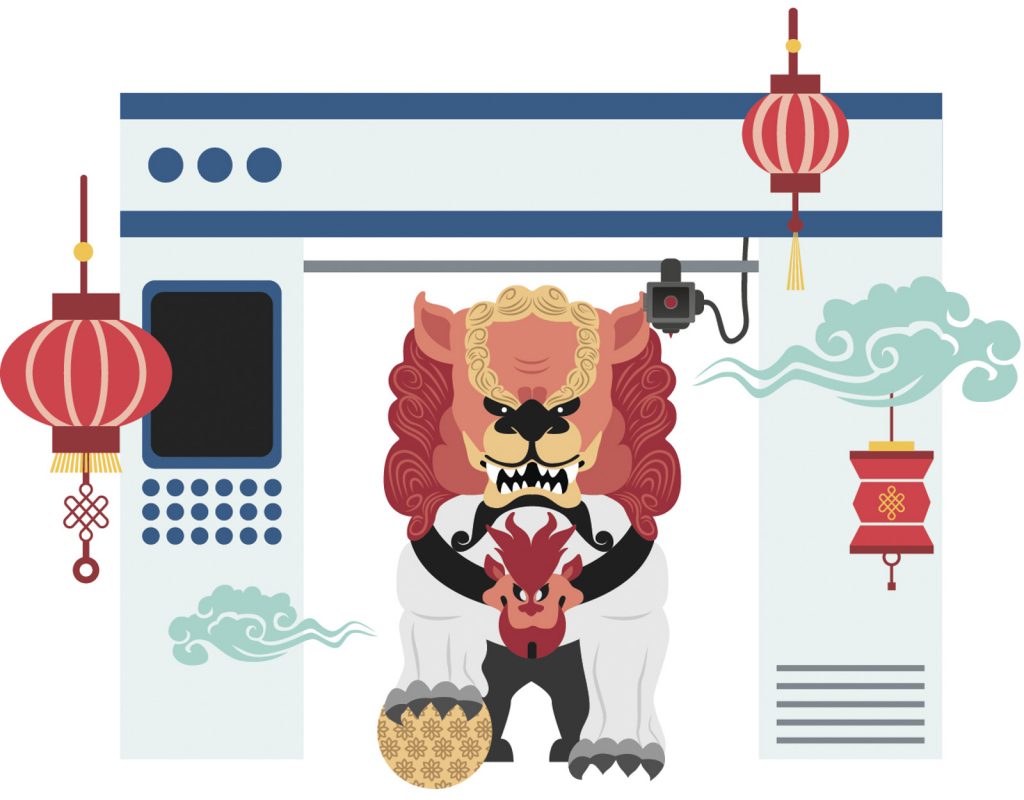Xi’an, the largest city in northwestern China, was once the country’s capital and occupied a crucial position as the end of the ancient Silk Road trading route. With its largely intact city walls and world famous terracotta warrior artefacts, the area’s rich cultural heritage ensures steady tourism. But as impressive as its past may be, local officials are increasingly attempting to cast Xi’an as a city of the future.
China’s grand One Belt One Road initiative is positioning Xi’an as a major innovation hub, with Shaanxi authorities unveiling a raft of incentives for businesses in the region. In August, the central government confirmed the establishment of China’s latest Pilot Free Trade Zone (FTZ) in the city, precipitating a steady stream of major investments.
Announcements from the country’s biggest companies of impending projects in Xi’an have become almost commonplace in recent months. Suning, one of China’s leading home appliance producers, has signed an agreement to build a new RMB 2 billion research facility in the FTZ’s Xi’an Hi-tech Industries Development Zone, while online shopping site Jingdong has already tested drone deliveries in and around the city, setting up the world’s first low-altitude unmanned aerial vehicle logistics network in Shaanxi.
This summer, at the first Xi’an Entrepreneurs Convention, Alibaba founder Jack Ma announced the company’s intention to establish its northwestern China headquarters in the ancient capital. He also unveiled plans for a training centre run by the company’s cloud computing arm Aliyun, in cooperation with Xi’an Jiaotong University, to nurture talent in the field of big data. International businesses have joined the fray too; Google, Samsung and IBM have all set up or pledged research centres and offices in the city.
Helping provide the foundations for Xi’an’s high-tech push are new facilities such as the Innovation Design Centre in Beilin district, which opened last year with research and development units from companies including Microsoft, Huawei and Tencent. More such complexes are on the way, most notably a 291-hectare site on the banks of the Wei River known as iHarbour. The development will cost an estimated RMB 15 billion and serve as an incubator campus and business park when it opens in 2020.

The Person:
Qi Lei
Xi’an’s growing prominence as an innovation centre in China isn’t just about big tech businesses. The city also has a growing maker community, with DIY-orientated science brand Maker Faire holding an event there for the first time earlier this year.
And MakerBeta is at the community’s heart. The space comprises a cafe for like-minded people to meet and a workshop for budding creators to tinker with small-scale projects. A WeChat account blasts educational videos twice a week. MakerBeta is led by Qi Lei, the chief executive, along with chief marketing officer Hong Yuanna and chief technology officer Xie Wenwen, who regularly features in the videos.
Qi says she was inspired to start MakerBeta from attending a Maker Faire event in Shenzhen. ‘There were all kinds of interesting projects there, so much cutting-edge technology and so many interactive experiences,’ she says. ‘It really inspired me and I had this idea of making short maker videos, something like a Chinese version of MythBusters on Discovery.’
Since early 2016, when MakerBeta’s video channel first launched, it has racked up tens of thousands of views for clips exploring everything from a knife that simultaneously toasts and slices bread to DIY wearable indicator lights for cyclists to use at night. ‘I think it’s important to maintain curiosity and to always be efficient,’ says Qi. ‘Innovation is born of curiosity and efficiency helps achieve it.’

The Product:
Chizi Technology 3D printer
Founded in Xi’an in September 2015, Chizi Technology was among an early wave of companies looking to take advantage of newly emerging 3D printing techniques. But what made the company stand out was founder Xi Xin’s focus on using these cutting-edge technologies to recreate ancient artefacts.
Chizi actually offers services that allow artists or sculptors to reproduce all manner of works, but it’s the imitation stone sculptures and wood carvings that have really caught attention. The company’s miniature takes on ancient sculptures can be found in museum shops and recently became available beside the emperor Qin Shi Huang’s tomb, one of Xi’an’s most visited historical sites.
Xi insists that the idea is not to produce knock-off versions of ancient artefacts but rather to enable more people to experience them and to preserve the art work’s original form. ‘Lots of artists will produce huge amounts of work over the course of their careers, but perfectly preserving the physical original is impossible,’ Xi told 3D Printing World in an interview. ‘By scanning these works we can perfectly preserve the data instead and reproduce physical versions.’
This then enables Chizi to make these products in a variety of sizes and materials. The company’s painted miniatures for tourists range from RMB 20 to RMB 500, while they also tailor make items for private collectors. ‘Our clients don’t buy our products because of the 3D printing aspect,’ he recently told AFP. ‘But it does make things easier.’
What to watch
Tell me more
Boee Software is known for its AR (augmented reality) educational products: point a smartphone at one of their books or flash cards, and more information pops up on the screen.
Get sorted
Xi’an-based app maker GMobile (formerly GeekSoft) created File Expert, a file manager that’s been downloaded tens of millions of times around the world. The startup now also has a file sharing service, cloud storage and even mobile games.
Mall maze
Yunjing provides indoor location services – maps that help shoppers figure out where they are in a mall, for example – which it claims are more accurate than the norm. The system can guide users to precise places and engage them with location-based content along the way.














